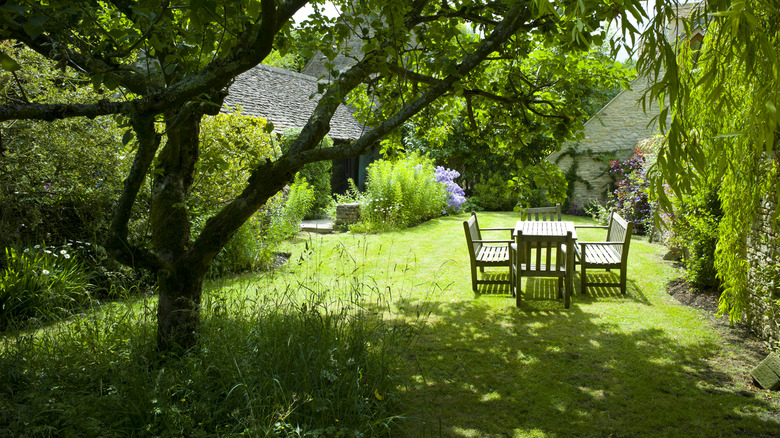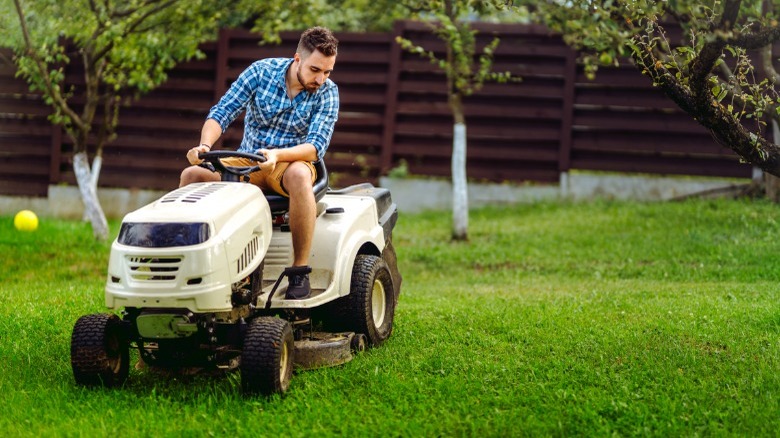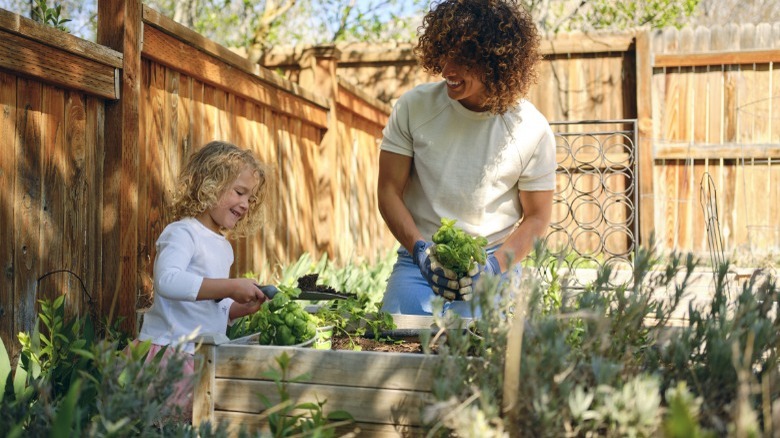The Lawn-Shrinking Trend Has Some Major Backyard Benefits
The trend of "honey, I shrunk the lawn" has caught fire — well, not literally, but you get the concept. Generally speaking, the lawn-shrinking trend involves replacing the traditional idea of a beautiful yard being large patches of perfectly mowed green grass with things like fruits and vegetables, native trees and plants, and perennials and shrubs, instead. It results in less time you have to spend on your yard and offers other benefits like growing your own food and helping to restore the delicate balance Mother Nature intended.
It's about letting a little bit of wildness into your life. It's about native plants and balancing the ecosystem. It's about the birds and the bees and trees without disease. People everywhere are enjoying major backyard benefits by adopting this nature-friendly philosophy. It takes a little time, but the rewards are sweet. The wildlife will thank you by bestowing butterflies, birds, and dragonflies. Better for you and better for the environment, lawn-shrinking is a win-win.
Beneficial to the environment
Did you know pushing a gas-powered mower for an hour emits as much pollution as 11 cars? It's true, and a riding lawnmower is equal to up to 34 cars (via National Wildlife Federation)! By dedicating a portion of your lawn to a garden, a perennial bed, or native species of any kind, you will be contributing to the environment in a big way. Birds, insects, and animals that are native to the area depend on these trees and plants. However, a massive amount of insects are near extinction, which is largely due to the loss of habitats and pesticide use. You can provide essential forage plants and habitat for many of them by simply scattering some daisies and clover in your lawn. Planting wildflowers attract pollinators that agriculture depends on, including our gardens.
Native plants are crucial in creating and preserving biodiversity and keeping the ecosystem balanced. They reduce air pollution, as well. Native planting helps prevent rainwater runoff, holds more moisture in the soil, and enhances groundwater purification. If we all did our part to reduce our grass lawns by even a little, it would have a huge, positive impact on the environment overall.
Beneficial to you and your property
By shrinking your lawn, you'll be spending a lot less time mowing the grass. Additionally, native plants don't require as much water as a lawn and can help prevent erosion. You'll use much less water, saving money on your water bill. Once established, these lawns require no fertilizer or pesticides and need far less maintenance overall. This equals less work, time, and money spent caring for your yard.
Growing a vegetable garden has its own rewards, with the opportunity to grow healthy, organic food for you and your family. It's sustainable and satisfying. A flower garden of perennials will bloom every year, and you don't need to worry about replanting. Native trees can provide fruits or nuts as well as habitats for birds and small animals that will grace your property with wildlife. These kinds of changes are less troublesome to maintain and will add natural beauty and character to your backyard. It's easy to see why lawn-shrinking is currently on trend.


